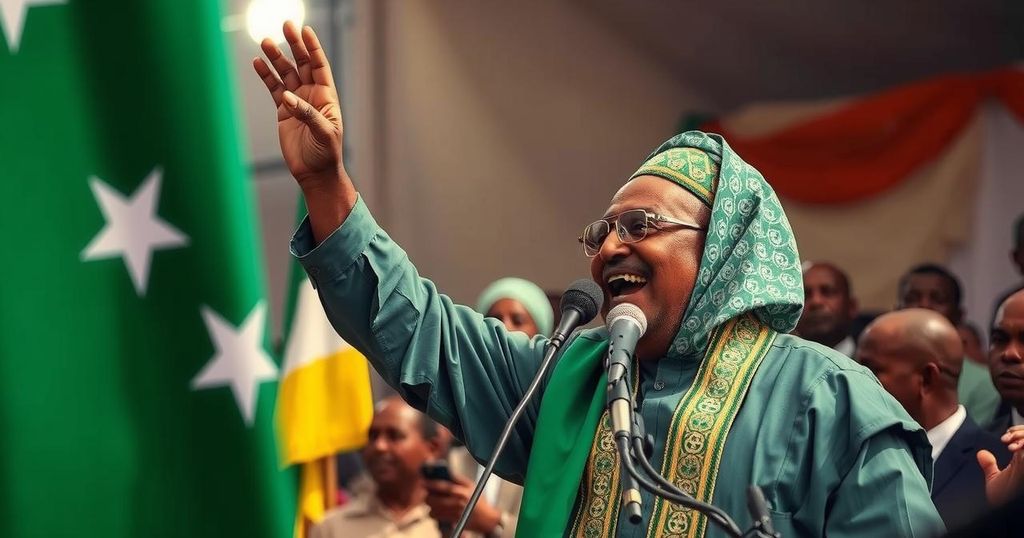Abdullahi Elected President of Somaliland in Quest for International Recognition

Abdirahman Mohamed Abdullahi has been elected president of Somaliland, securing about 64% of the votes against incumbent President Muse Bihi Abdi. This election was delayed for two years and reflects Somaliland’s ongoing efforts for international recognition. The region has established a stable governance system since declaring independence in 1991, yet remains unrecognized, hindering its economic potential.
Abdirahman Mohamed Abdullahi, known as Irro, has been elected as the new president of Somaliland, securing approximately 64 percent of the votes in the recent presidential election. Leading the opposition Waddani Party, Abdullahi triumphed over the incumbent President Muse Bihi Abdi of the Kulmiye Party, who received around 35 percent of the vote. This election took place after a prolonged delay of two years due to financial challenges and other issues, reflecting the political aspirations of Somaliland to achieve international recognition as an independent entity. Since declaring independence from Somalia in 1991 amid the onset of civil conflict, Somaliland has established a relatively stable governance framework, contrasting sharply with the ongoing turmoil experienced in Somalia. Despite maintaining its own government, currency, and security systems, Somaliland lacks formal recognition from the international community, which inhibits economic development and international travel for its populace. Both major candidates during the campaign proposed measures to invigorate the economy and further the quest for recognition from global bodies. In the context of regional dynamics, the government in Hargeisa is working towards finalizing a contentious agreement that would allow neighboring Ethiopia to access the sea, in exchange for assistance regarding international recognition. This deal has elicited backlash from Somalia’s government, which perceives it as a breach of its sovereignty. Moreover, the political landscape is influenced by speculation regarding potential shifts in U.S. foreign policy toward Somaliland under the incoming Trump administration, as there are indications that certain officials within the Department of State may support recognition of Somaliland’s sovereignty as a separate entity.
Somaliland’s political landscape has been significantly shaped by its pursuit of independence since its declaration in 1991. The region has developed its own institutions and governance structures, establishing a sense of stability amidst the chaos of Somalia’s conflicts. However, without international recognition, Somaliland faces developmental limitations, including restricted access to global financial systems and travel bans. The recent electoral victory by Abdullahi highlights ongoing aspirations for international legitimacy, alongside economic promises made by political candidates. The political maneuvers involving Ethiopia further complicate Somaliland’s quest for recognition, revealing a strategic engagement in regional politics amidst international diplomatic considerations.
The election of Abdullahi marks a pivotal moment for Somaliland, reinforcing its commitment to achieving greater international status and a resilient economy. His leadership agenda seeks to reconcile local aspirations with the complexities of regional diplomacy, particularly with neighboring Ethiopia. Moving forward, Somaliland’s political stability and ongoing negotiations for recognition will be crucial in defining its future trajectory, especially against the backdrop of Somalia’s unstable government and the geopolitical interests of powers like the United States and Ethiopia.
Original Source: www.aljazeera.com








